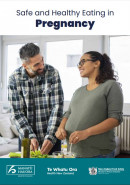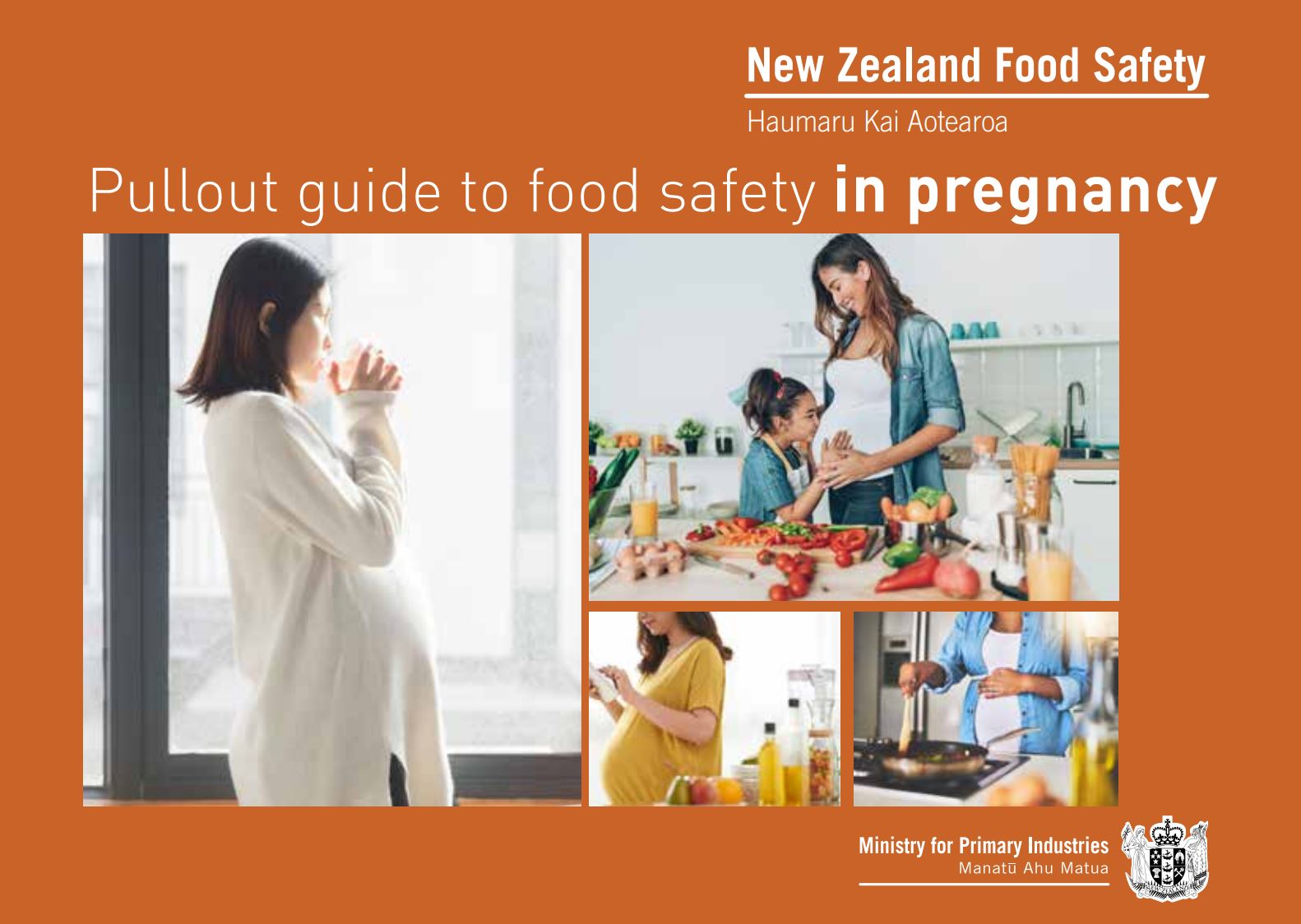If you're a frequent visitor to Healthify, why not share our site with a friend? Don't forget you can also browse Healthify without using your phone data.
Pregnancy and food safety
Key points about pregnancy and food safety
- When you’re pregnant, some foodborne illnesses can be more dangerous than usual and may harm your own health or the health of your developing baby.
- In extreme cases, harmful bacteria such as listeria, salmonella and campylobacter found in some food, and pathogens such as toxoplasma, can cause miscarriage, stillbirth or premature birth, serious illness and even the death of a newborn baby.
- Play it safe and find out what foods to avoid while pregnant.

- Chilled ready-to-eat foods (eg, coleslaw, salads or sliced meat from a supermarket deli or restaurant buffet).
- Pre-prepared ready-to-eat foods (eg, uncooked sandwiches or sushi).
- Soft and semi-soft pasteurised cheese (eg, brie, camembert, feta, blue, mozzarella, ricotta) unless cooked.
- Raw (unpasteurised) milk products (eg, unpasteurised cheese, cream or milk).
- Cold cooked or smoked chicken.
- Processed meats (eg, ham, pâté, salami, luncheon).
- Raw or smoked seafood (eg, sushi, smoked salmon, marinated mussels, oysters, shellfish).
- Raw eggs (including in smoothies, mayonnaise or desserts like mousse).
- Soft serve ice cream.
- Cream or custard (eg, in pre-made cakes or pastries). Newly opened or home-made and fresh is fine.
- Hummus and other dips containing tahini.
As well as avoiding certain foods, you should also “clean, cook and chill” so you don’t get ill.
Clean
- Wash and dry your hands thoroughly before and after preparing food (especially after handling raw meat, using the toilet or helping a child to go to the toilet, covering a sneeze or a cough, changing nappies, touching pets and gardening).
- Use clean tea towels and hand towels.
- Use different coloured cloths for the dishes, the bench and the floor (or use paper towels and disinfectant to wipe up raw meat juices or floor spills).
- Use a separate chopping board and utensils for raw meats.
- Put cooked food onto a clean plate, not the one you used when the food was raw.
- Change or wash your dish cloths or sponges regularly.
- Cover food to protect it from flies or cross-contamination from raw meat juices.
- Thoroughly wash fruit and vegetables in safe (treated) water as they may have dirt, insects or residue from sprays.
Cook
- Defrost food in the fridge overnight or on the defrost setting in the microwave and make sure it’s defrosted properly before cooking.
- Preheat the oven so food cooks as quickly as possible.
- Keep raw and cooked food separate.
- Cook or reheat food thoroughly. Use a meat thermometer to check food if cooked to the safe internal temperature of 70°C.
- Marinate food in the fridge and cook the marinade before pouring it over cooked food.
- Eat cooked food while it’s hot – don’t leave it to stand at room temperature for more than 2 hours.
- Reheat leftovers until piping hot (over 70°C) and don’t reheat more than once.
- If you use a microwave, stir food to avoid uneven cooking, cover food so it cooks or thaws more evenly, and leave food for the recommended standing time so it finishes cooking.
Chill
- Your fridge should be at or below 4°C.
- Your freezer should be cold enough that the food is frozen solid.
- Cover food before putting it in the fridge or leaving it out for serving (food can be left at room temperature for up to two hours before it should be eaten, reheated, put in the fridge or thrown out).
- Cover and store raw meat in the bottom shelf of the fridge so the juice doesn’t drip onto other food.
Washing and drying your hands properly is one of the most effective things you can do to prevent foodborne illnesses.
- Wash your hands thoroughly with soap for 20 seconds.
- Rinse them well.
- Dry them for 20 seconds using a clean, dry hand towel or paper towel.
- Use a fresh hand towel daily (change it more often if needed).
- Keep hand towels for hands only or use paper towels (don’t use a tea towel).
- Keep food in covered containers and store as recommended by the manufacturer.
- Eat food before the “use by” and “best before” dates.
- Leftover hot food should be covered and put in the fridge as soon as it’s stopped steaming.
- Throw out leftovers after two days and never freeze food more than once.
- Canned and other “shelf-stable” food that can be stored in the pantry is not usually a risk as long as it is stored as per the instructions. Leftovers from cans should be removed and covered, then stored in the fridge and eaten within two days.
- When you go grocery shopping, make sure raw meat is packed separately from your groceries to stop cross-contamination from raw meat juices.
- Take food straight home or transport it in a chilly bin, then put it in the fridge or freezer straight away (never leave food in a hot car or sitting around waiting to be put away).
- Don’t buy chilled products that aren’t cold to the touch, frozen products that aren’t frozen solid, food in damaged packets or tins or in loose vacuum packs.
The principles of food safety are the same for takeaways and food you eat in a café or restaurant as they are for food prepared at home. If you’re travelling overseas, please seek advice from your GP or healthcare provider.
Most types of foodborne illnesses have similar symptoms including:
- nausea
- vomiting
- diarrhoea
- stomach pain
- headache
- swollen glands
- flu-like symptoms including fever and muscle aches.
If you have any of these symptoms, please see your GP or healthcare provider as soon as possible.
Safe and healthy eating in pregnancy [PDF, 1.6 MB] MOH, Health New Zealand | Te Whatu Ora, NZFS, NZ, 2023
Pullout guide to food safety in pregnancy [PDF, 1.8 MB] Ministry for Primary Industries, NZ, 2023
Reference
- Food safety in pregnancy(external link) Ministry for Primary Industries, NZ, 2020

Safe and healthy eating in pregnancy Health New Zealand | Te Whatu Ora, Te Whatu Ora, NZFS, NZ, 2023
Credits: Healthify Editorial Team. Healthify is brought to you by Health Navigator Charitable Trust.
Page last updated:






